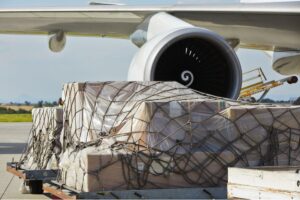EAC Secretary-General Dr Peter Mathuki said the Council of Ministers is expected to plan on the location of the EAMI this year.
Over the recent past, member states have been jostling to host the EAMI, each angling to avail themselves of the massive potential to attract foreign capital and become the region’s financial hub.
“The EAMI will be in place this year in what will allow us to harmonize member states’ fiscal and monetary policies, then in about three years we will have a common currency in place,” he told journalists last week.
The single currency will ease business and movement of persons within the region, which would achieve the bloc’s goal of becoming as envisioned in the Common Market Protocol.
The EAC has a collective population of 300 million, with investors from across the world standing to gain from the market and by extension have access to the entire continent’s population.
The common currency marks the third pillar of integration of the EAC after the establishment of the customs union and the common market protocol that deepened cooperation among the Partner States.
Statistics from the EAC secretariat show that Intra-regional trade within the regional bloc is on an upward trajectory, standing at USD10.17 billion by September 2022.
Dr Mathuki has attributed the intra-regional trade growth to political goodwill among the members of the Summit of EAC Heads of State and the relaxation of Covid-19 restrictions in the region amongst others.
He said the high-level discussions among the Heads of State have worked to eliminate a number of Non-Tariff Barriers (NTBs) that were hampering intra-regional trade.
“257 NTBs have been cumulatively resolved since 2007. This is in tandem with the bloc’s goal to increase the volumes of intra-regional trade,” Dr Mathuki said.
In just under two years since President Samia Suluhu came to power, Tanzania’s ties with Kenya thawed, and trade between Nairobi and Dar es Salaam crossed the Sh100 billion mark for the first time.
The two neighbours have also resolved 23 restrictive regulations that had impeded trade between them, which pushed the cumulative non-tariff barriers resolved and eliminated to the current 257.
The EAC comprises seven-member states with the latest entrant being The Democratic Republic of Congo which came on board in March last year, adding its more than 90 million market population to the regional trading bloc.
DRC, a mineral-rich country, already has established trade ties with most of the EAC member states through bilateral deals and at the multilateral level where it is affiliated with the Southern African Development Community (SADC) where Tanzania is a member.
On peace and security, the Secretary-General said that EAC was keen on stabilising the Eastern region of the Democratic Republic of Congo, a process that he said requires a political solution that will be provided by the Heads of State.
Share this news
This Year’s Most Read News Stories

Zanzibar Investor British Dad talks about being jailed on paradise island
British investor and hotelier Simon Wood, from Preston, Lancashire, and his wife Francesca Scalfari were locked up in a Zanzibar prison charged with money laundering. Both were released after pressure from British Embassy.Continue Reading

Mwinyi lashes out at Zanzibar Airport, Port inefficiency claims
Zanzibar President Hussein Mwinyi has lashed out at the Opposition ACT Wazalendo, saying that the claims it raised about inefficiency in three areas within his Government were only meant to mislead the publicContinue Reading

Zanzibar airport monopoly puts 600 jobs at risk
On September 14, 2022, the director general of ZAA issued a directive that gave Dnata Zanzibar Aviation Services Limited an exclusive access to the newly constructed Terminal III, barring other operators.Continue Reading











